Tschentscher's remarks were echoed by German Chancellor Olaf Scholz, who stressed: "Aviation is indispensable for a high-technology, exporting country like Germany. Aviation connects Germany with the world." Hamburg is the world's third largest civil aviation centre and a catalyst of innovation. One example is the new A321 XLR, which Airbus is assembling in Finkenwerder. The aircraft cuts fuel consumption plus the carbon footprint per seat by 30 per cent over predecessor aircraft. Equipping the A321 XLR with sharkskin technology would save another 3 per cent as it optimizes the airflow thus enabling significant fuel savings. Learning from nature is not new and among the quick win approaches recommended by the Climate Neutral Aviation Working Group, which presented an interim report during the conference.
"Aviation is back and flying remains fascinating," according to Carsten Spohr, CEO of the Lufthansa Group and practically host of the recently-ended 3rd National Aviation Conference at Lufthansa Technik in Hamburg. Around 400 delegates had come together for the "Aviation: Innovative and Climate Neutral"-themed meet on Monday (September 25, 2023). The goal of climate-neutral aviation, as declared by top-calibre speakers and the German government, was announced in the amended Climate Change Act by 2045. However, reconciling global mobility needs with climate protection remains crucial and will prove economically profitable, according to Dr Peter Tschentscher, Mayor of Hamburg. He stressed: "Ultimately, only those aviation products that pursue the goal of climate-neutral flying will be successful on the market."
Lowering fuel usage
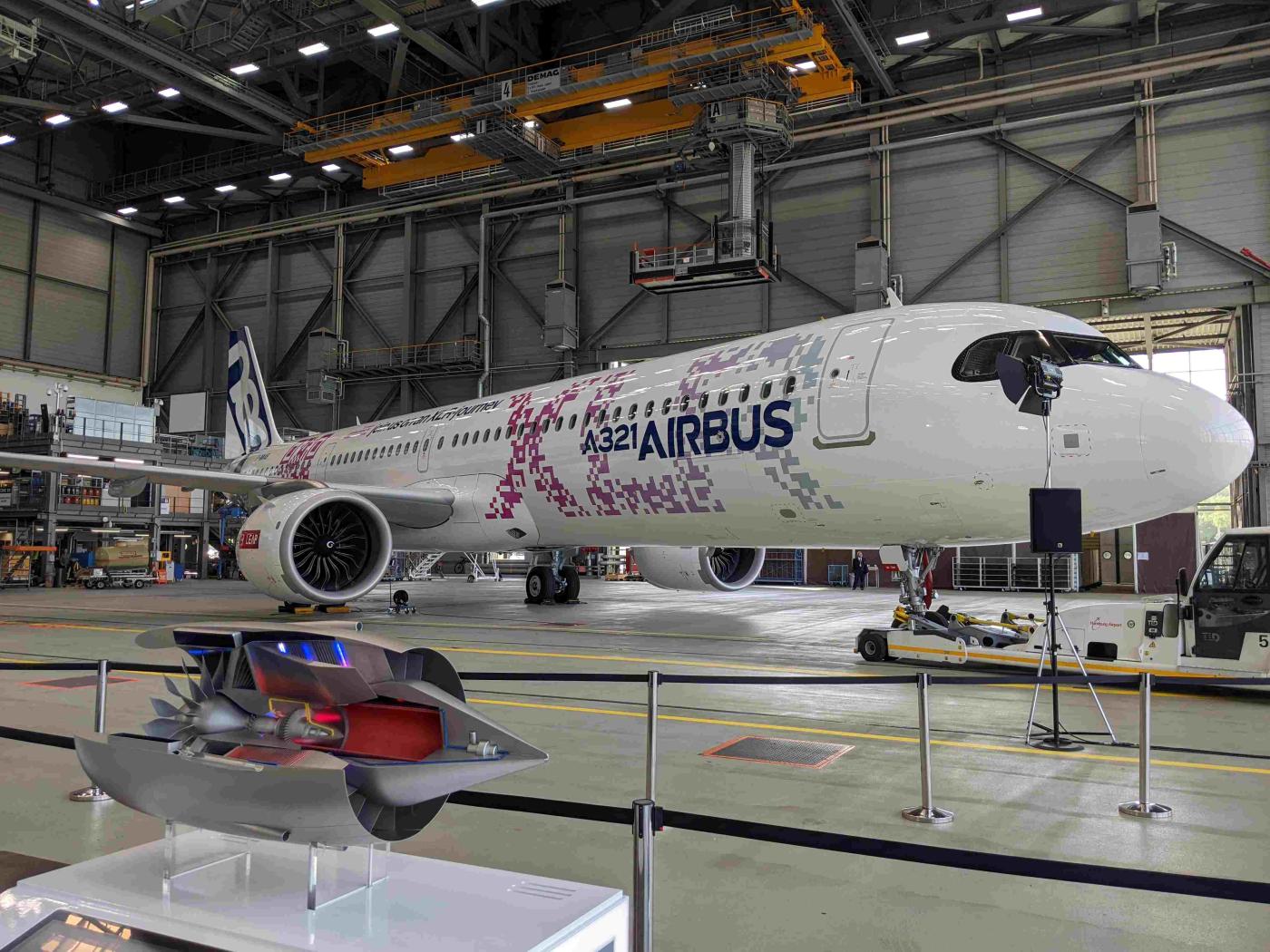
SAF proving hot topic
“We will not be able to decarbonise aviation without Sustainable Aviation Fuel (SAF),” said Volker Ratzmann, Executive Vice President Corporate Public Affairs at Deutsche Post DHL Group. However, only limited amounts of SAF are available at present. “A rapid market ramp-up of the technology might give Germany a real competitive advantage,” according to Dr Robert Habeck, German Minister for Economics and Climate Protection. The German government has come out in favour of the highly-ambitious ReFuelEU Aviation proposal, under which the EU would oblige fuel suppliers to blend sustainable aviation fuels (SAF) with kerosene in increasing amounts by 2050.
Many conference delegates welcomed this move towards climate-friendlier aviation. “Flying does not have to be a climate killer,“ said Jürgen Kerner, Member of the Board at IG Metall. However, climate-friendly measures can prove a headache for global competiveness especially, if only Germany adheres to the EU’s tough laws. “SAF is five to six times more expensive than ordinary kerosene,” Spohr pointed out, and stressed: “We need regulations for fair, global completion.“ And Germany would have to import SAF in the event of a rapid market ramp up.
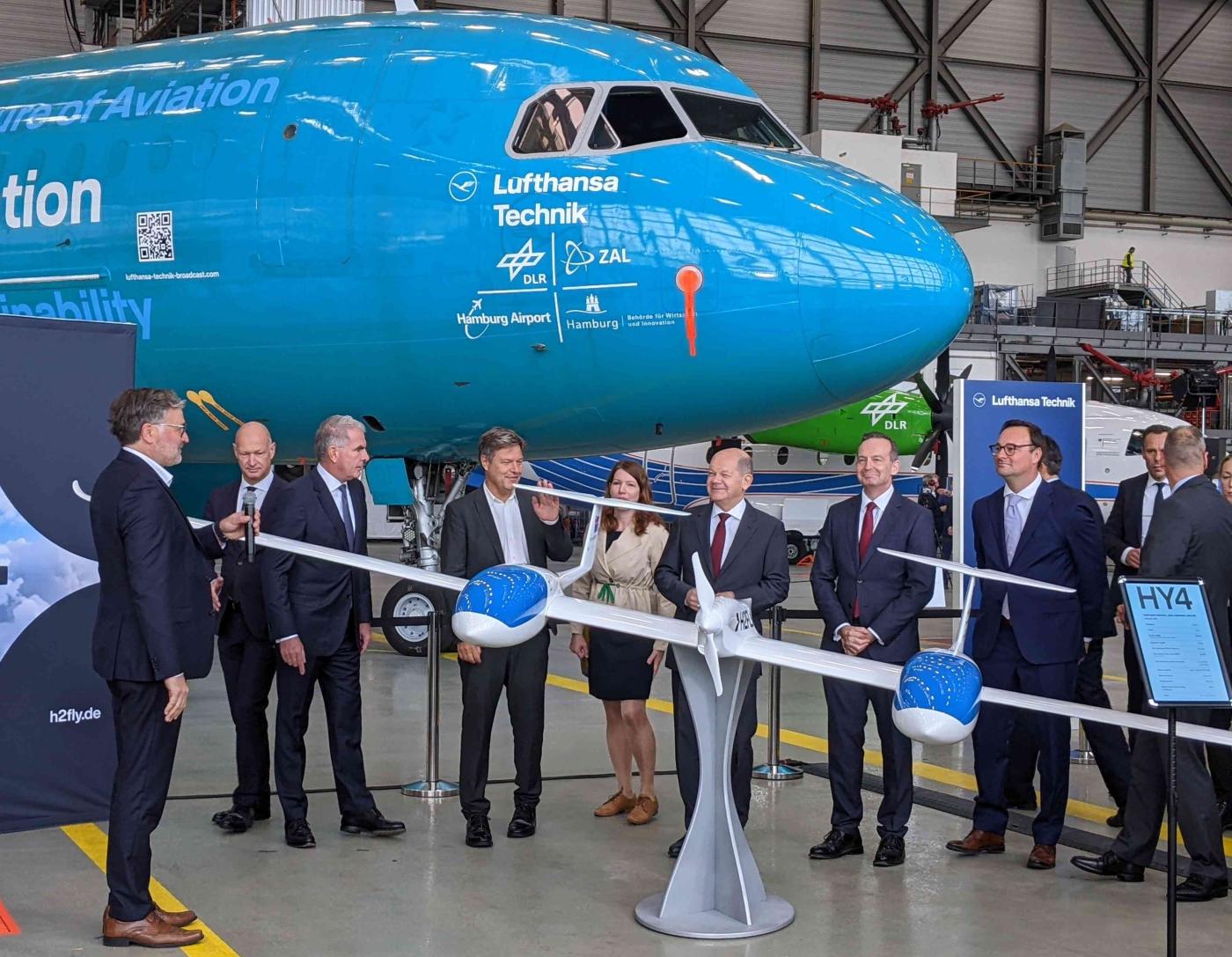
Flying test lab handed over
Other innovations included the hand over of a Dornier 328 to the German Aerospace Center (DLR) as a flying test laboratory. Promising propulsion, fuel and system technologies for decarbonising aviation can now be tested under real flight conditions. The short-haul aircraft will become a flying test bed for hydrogen technologies, and will be available to as many research partners as possible on a technology-neutral basis. The flying test lab was facilitated as part of the UpLift project, an H2 funding priority of the Aviation Research Program Climate (LuFo Klima).
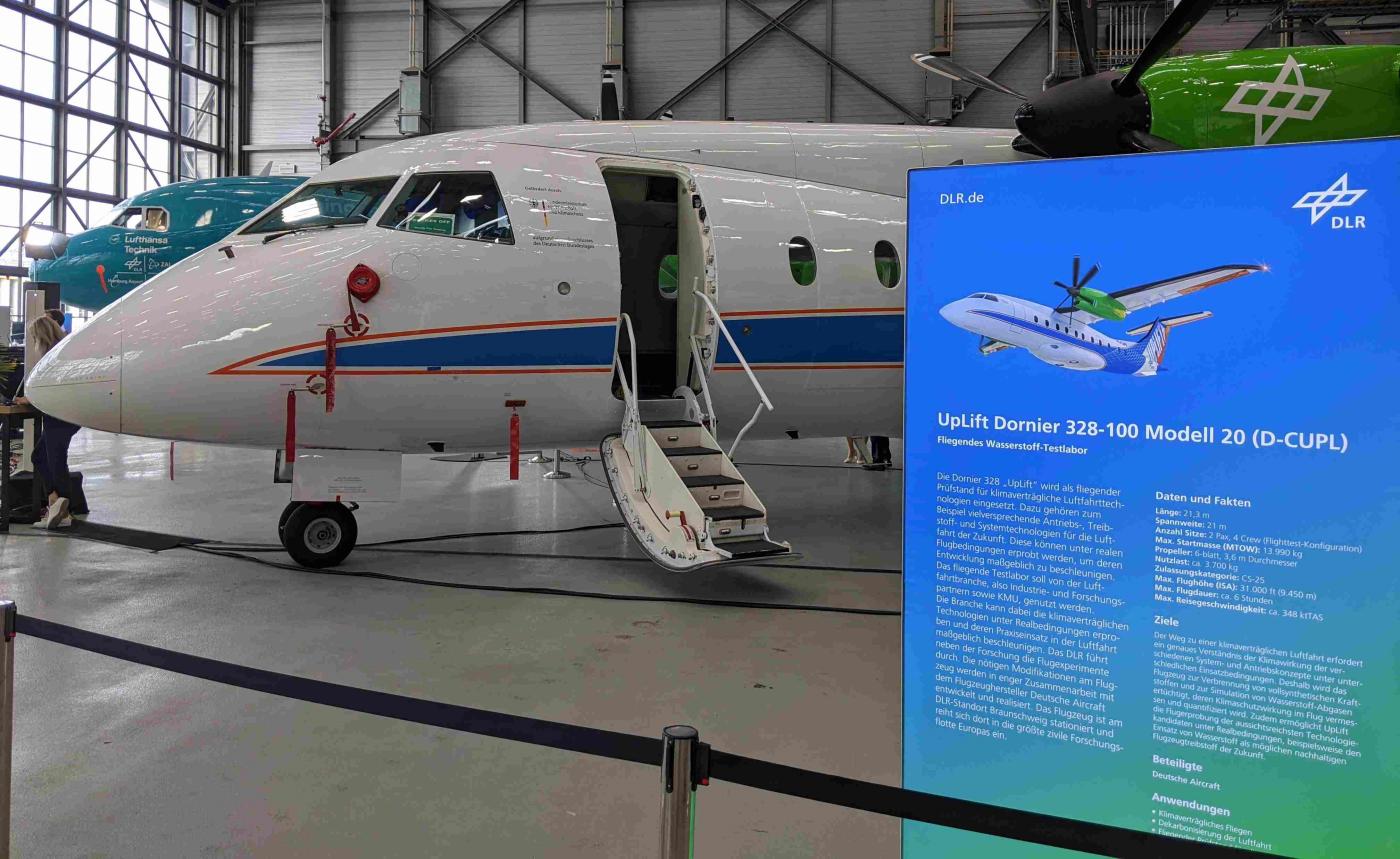
Advanced air mobility strategy
Wissing also announced plans to develop an advanced air mobility strategy to make Germany more attractive for UAV operators. "Several potential manufacturers of air taxis are located here. The first commercial flights are due to launch by 2025." In view of the busy airspace over the Hamburg Metropolitan Region, Tschentscher noted: "Air taxis are not intended as a new means of commuting to work. They are instead a highly attractive alternative for distances between 50 or 80 kilometres, e.g., to bring emergency services to the scene of an accident quickly."
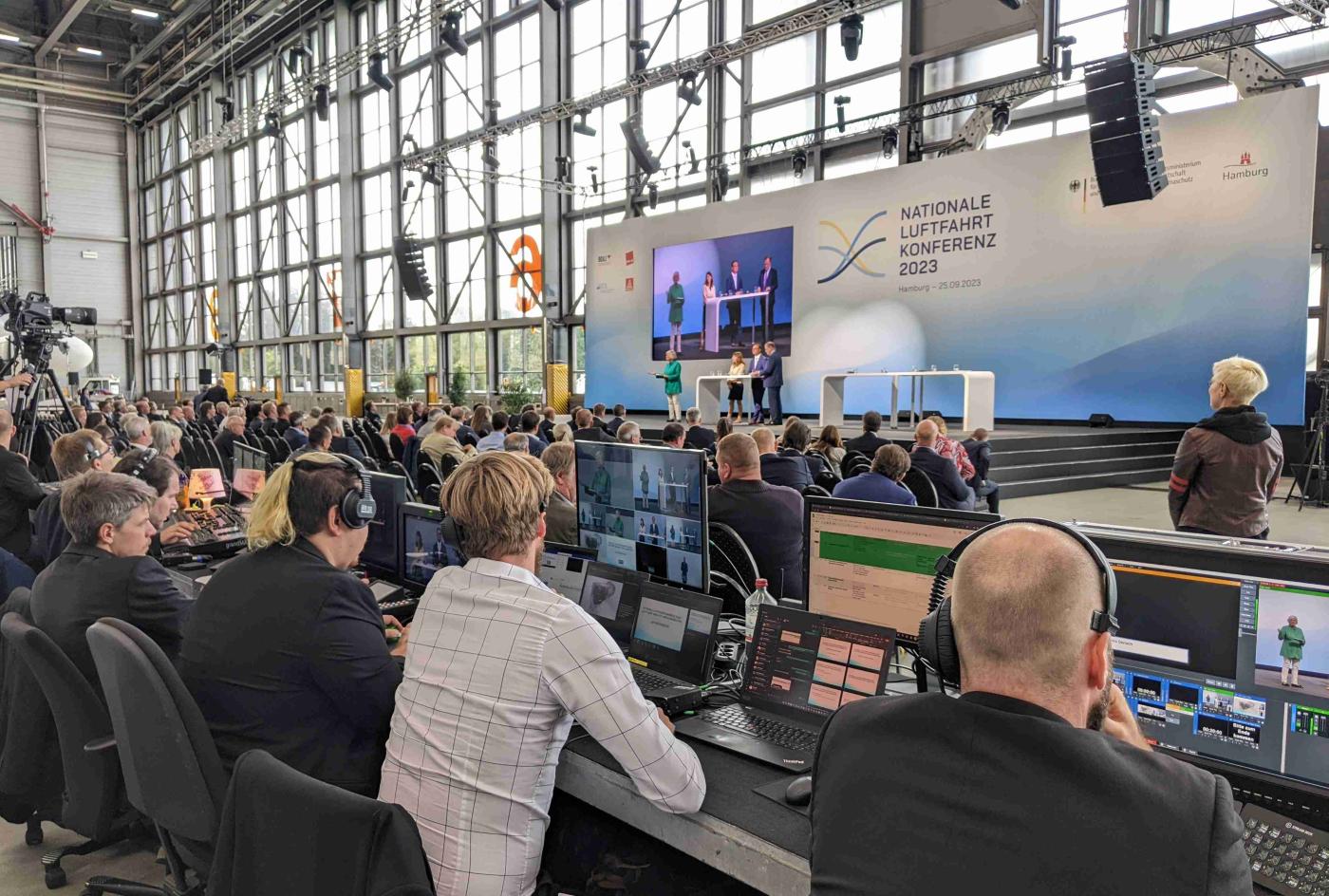
Turning domestic flights electric
The Munich-based start-up, Vaeridion, is developing a new, battery-powered aircraft for distances of up to 500 km. “Our design puts the batteries in the wings,” said Ivor van Dartel, joint founder, who wants to turn domestic flights electric. Up to nine passengers and crew fit in Vaeridion’s model, which is due to take to the skies in 2026. “Then, a test phase will follow and we hope to position ourselves on the market in 2030.” Roland Gerhards, CEO of Applied Aeronautics Research (ZAL), hopes to convince van Dartel to set up shop in Hamburg, and noted: “We at ZAL are advancing aviation by networking key players thereby accelerating innovative approaches significantly. ZAL has around 26,000 square metres available for this purpose. ZAL 2 will add another 8,000 square metres and ZAL 3 is also being planned. Then we can focus even more on start-ups.”
ys/kk/pb
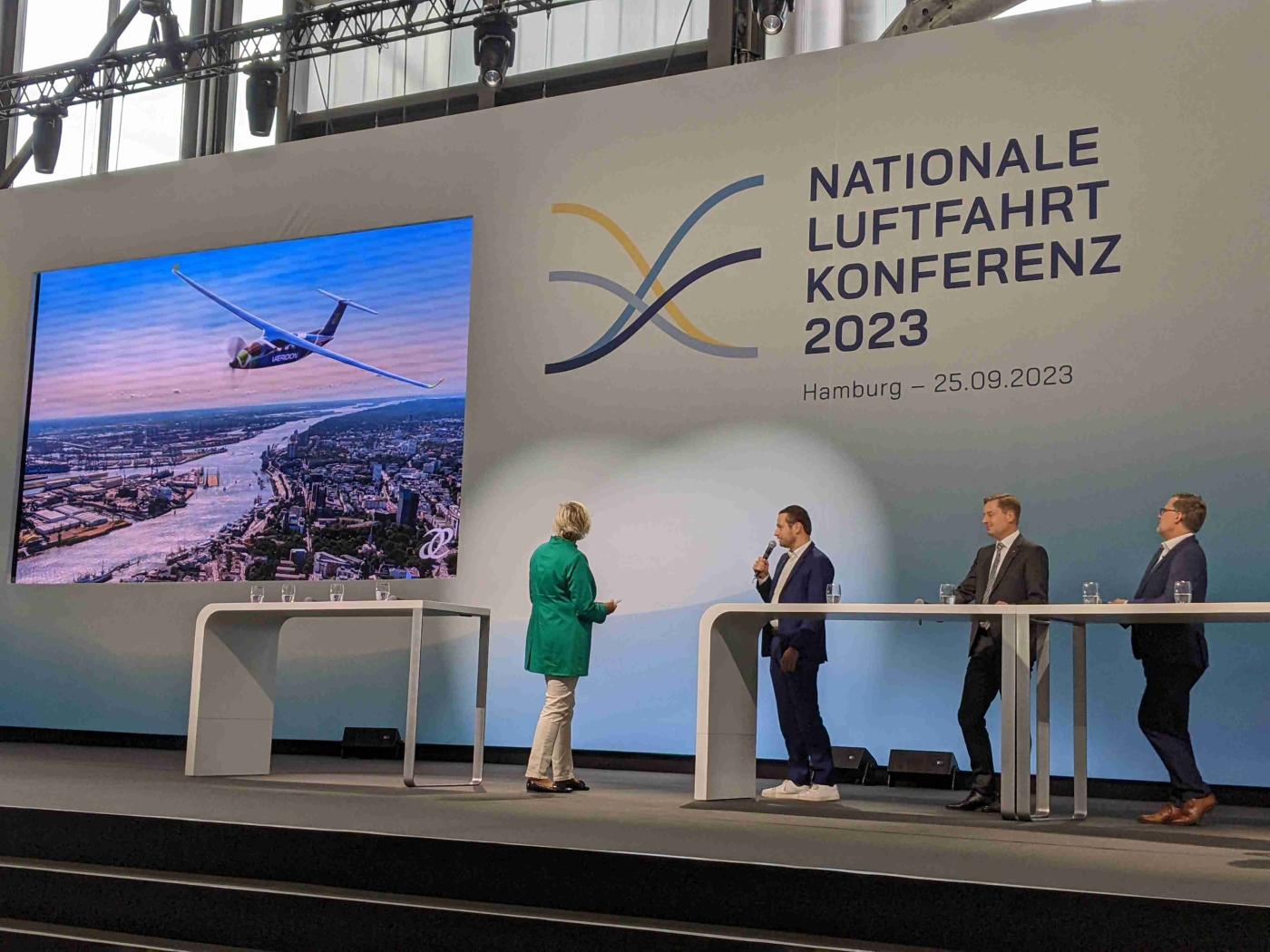
Sources and further information
More
Similar articles
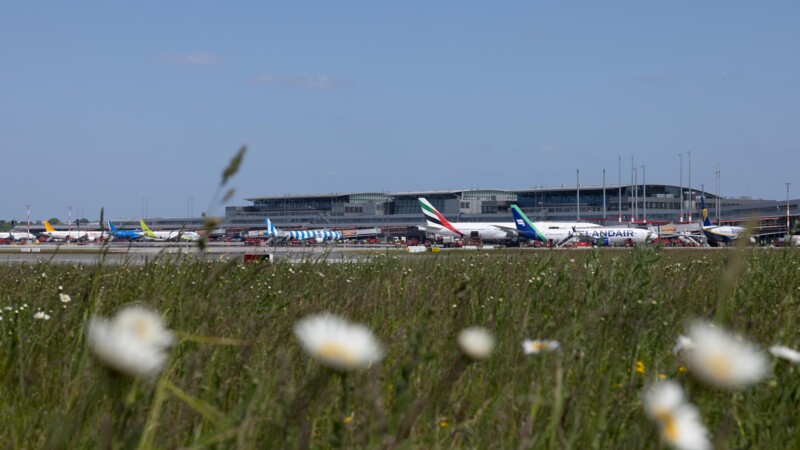
Hamburg Airport secures EU funding for H2-powered aviation
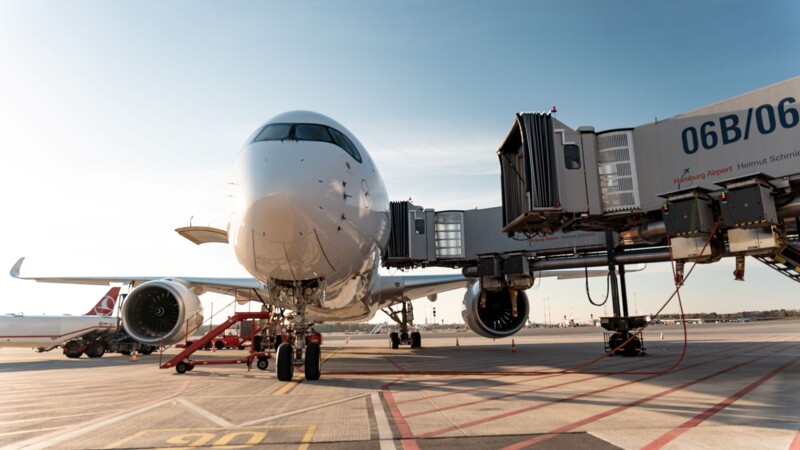
Green boost for aviation thanks to funding schemes
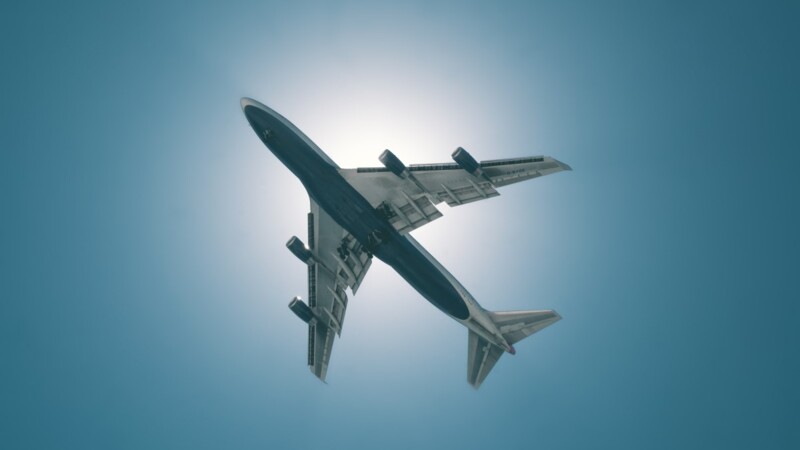
Record passenger numbers at Hamburg Airport
